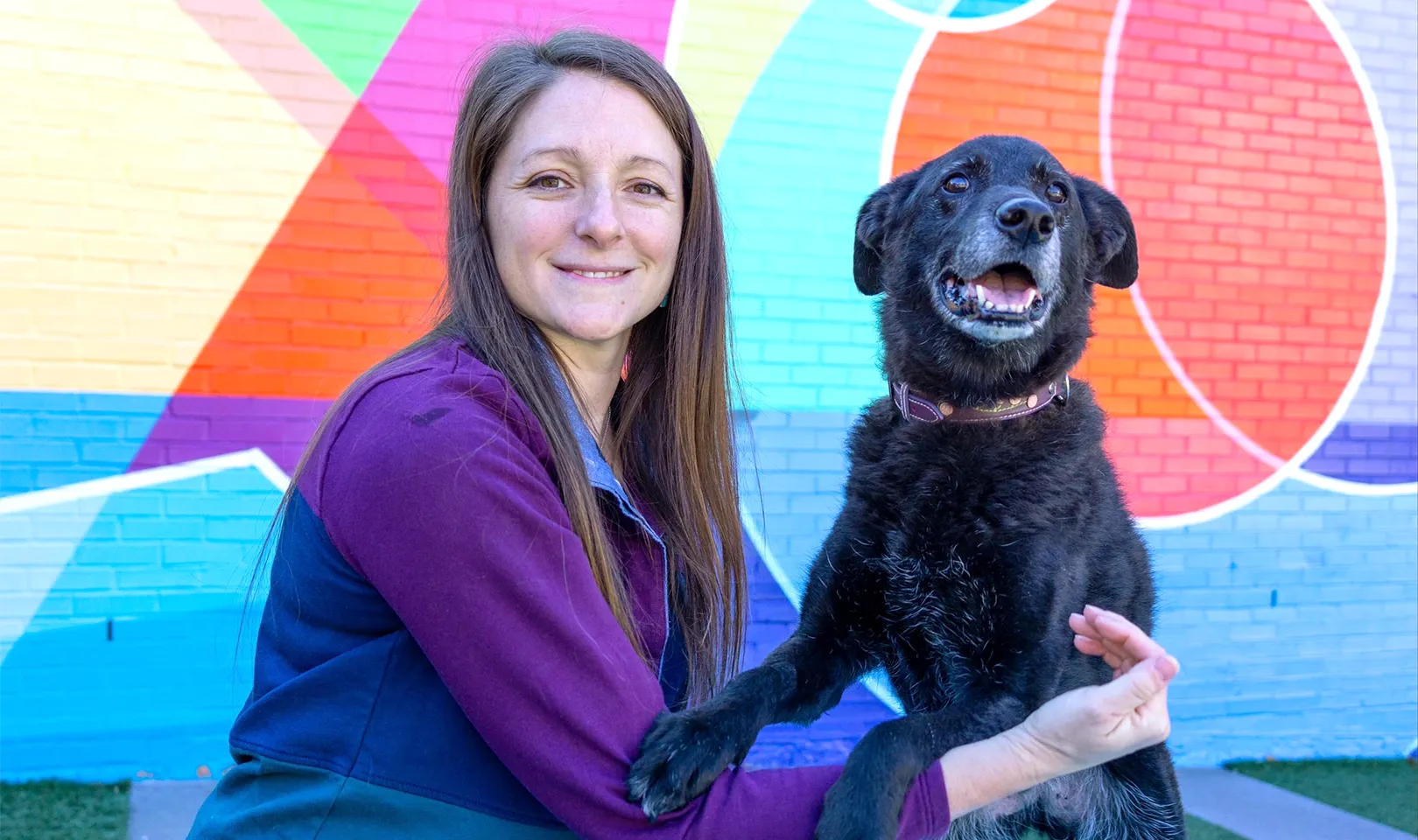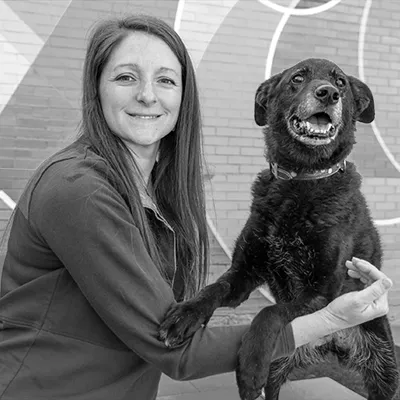Bringing Care Back to Vet Med


Dr. Juliane Evans shares her story of why she became an IndeVet.
Caring for pets by caring for vets
My main goal in becoming a veterinarian was to support and improve community health and vet med through animal healthcare. But after spending several years with some long on-call hours, I realized that the pets were not the only ones who needed care.
Caregivers play a critical role in society and being a caregiver is demanding. Over the past several years I have developed a passion for wanting to support other veterinarians.
Between the long hours and mental health concerns in our profession, including feelings of burnout and compassion fatigue, many of our colleagues are tired, overworked, and in need of healthy work-life balance. This is what so many vets struggle with — we are caregivers that sacrifice ourselves for the care of others, and we need care too.
Read more: Surprisingly human — How vet care is also people care.
I want to be there to help colleagues take breaks from their work and replenish themselves, to rest, or to have the opportunity to be away from their work… so that they can take care of other important roles they may play (like parents, friend, and more). Yet I also want their hospitals to be able to continue to provide care that so many patients rely on.
Providing support through relief work
As a relief veterinarian with IndeVets, I am able to choose where I work and when. This allows me me this opportunity to help support our veterinary community.
Flexible scheduling allows me to work in a way that I can provide care to hospitals that may need it the most.
This might mean providing coverage for a doctor who is out on maternity leave, attending continuing education, or on a much needed vacation to help reset oneself. I am excited to offer this continuation of care for patients and ease a hospital’s strain with a doctor being out.
Being a part of a larger veterinary community
Like many veterinarians, until recently my practice had been limited to working within hospitals of 1-3 other veterinarians. Through relief work I have found a larger veterinary community. We as veterinarians have so many common goals, interests, and struggles, despite being in different locations and seeing different animals and their owners.
It reminds me of when I first arrived at vet school — I was amazed at the group of like-minded individuals I spent so much time with over those 4 years, building friendships over anatomy labs, commiserating over finals, and supporting each other through clinical rotations.
Once I started in practice, I missed that community. With relief work, I feel as though I am gaining some of that back, and although we don’t spend as many long hours pouring over textbooks or cases together, I really appreciate the moral support and collaboration that comes from these opportunities. We really do have a lot in common with each other.
Read more: 6 tips to set and maintain boundaries in work and in life
IndeVets are virtually connected via Microsoft Teams. In our virtual community, we collaborate and share challenging cases, patient successes, and tips and ideas that we learn from others. We share in both the joys and heaviness of our work too. “A burden shared is a burden halved,” to quote author T.A. Webb.
In some ways our work can be isolating and lonely, and loneliness has been shown to have a negative impact on our health. Loneliness lends itself to anxiety and depression, which are issues that many workers in the veterinary field deal with, albeit for many different reasons. I am excited to be working in a relief position so that I can be a part of connecting our islands of veterinarians to each other and maybe (hopefully) reducing feelings of loneliness.
“However, if we can transform our attitude towards suffering, adopt an attitude that allows us greater tolerance of it, then this can do much to help counteract feelings of mental unhappiness, dissatisfaction, and discontent.” —Dalai Lama
Seeking joy and gratitude in vet med
IndeVets is seeking to “return balance, fulfillment, and joy to veterinary medicine.” One of the core values of IndeVets is gratitude.
Gratitude can help offset negative emotions, and practicing gratitude daily has a wide range of benefits that includes more feelings of joy and positive outlooks, improved immune function and sleep, and reduced feelings of loneliness.
We can practice daily gratitude by acknowledging good things that we receive and the role other people play in providing goodness. This might mean keeping a gratitude journal, making a point to thank someone regularly, or sharing something you feel appreciation of over coffee or dinner discussions.
“In ordinary life, we hardly realize that we receive a great deal more than we give, and that it is only with gratitude that life becomes rich.” Dietrich Bonhoeffer
I love that IndeVets supports gratitude both in core values and in actions too, like the Share the Love fund, Vetsgiving, and shout-outs on Teams, just to name a few.
I hope that by having a community that appreciates gratitude, we can bring more joy to our wider veterinary community, through connecting and supporting our fellow veterinary colleagues.
In closing
IndeVets are seeking to improve animal health by bringing together happy and healthy veterinarians and uniting them with animal hospitals to provide high standards of care.
By building up our connections in the wider veterinary community, we may come to collaborate and solve many of the current issues our industry is dealing with today for an improved future, both in patient care standards and in veterinary staff well being.
Dr. Juliane Evans is an Associate IndeVet practicing in North Carolina.
More from IndeVets:
Making time for family in Japan, and finding a support system along the way
3 tips for becoming a successful relief veterinarian
